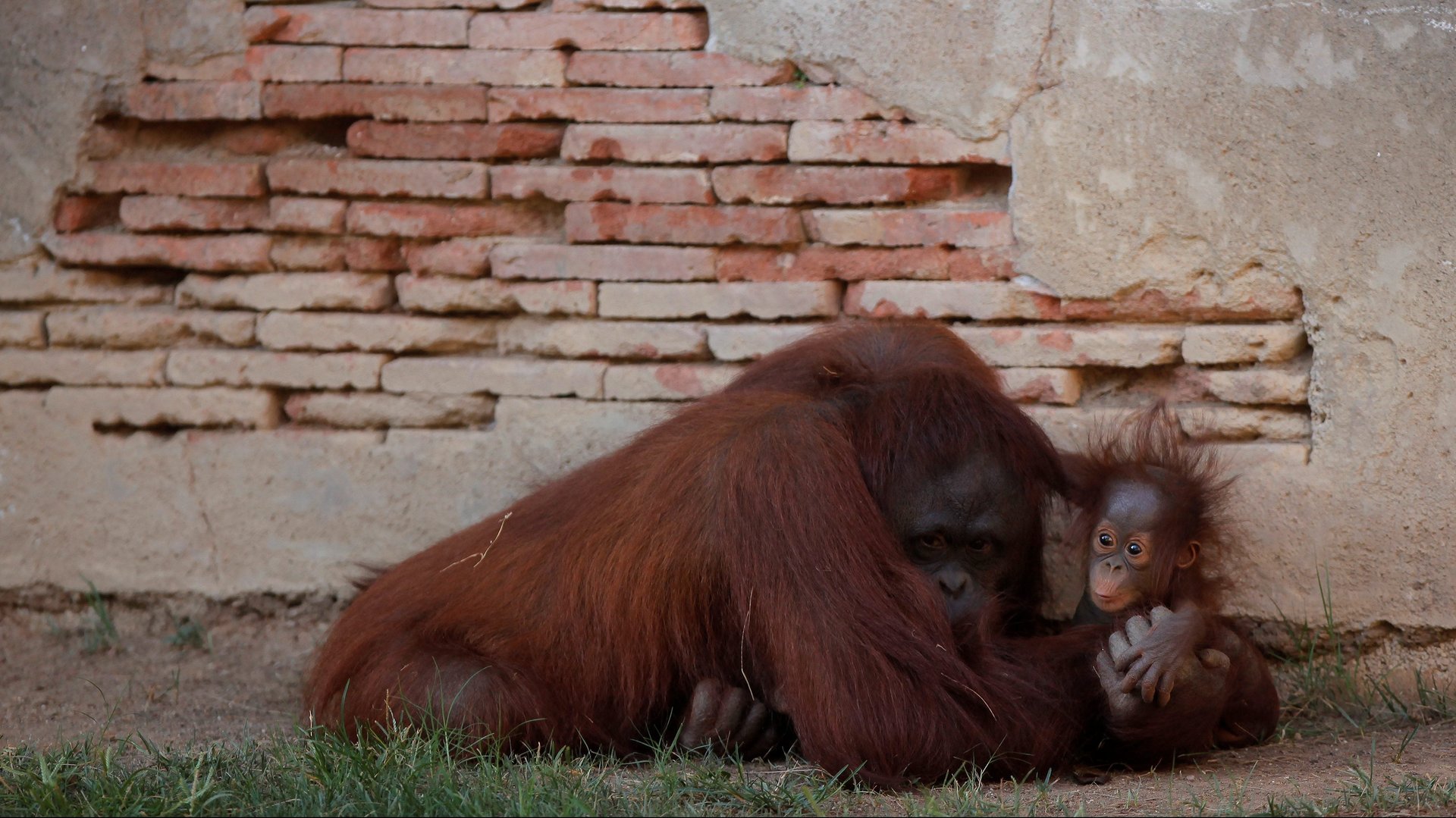The world’s orangutan population has been cut in half in 16 years
Orangutans—the only great ape species in Asia—are one of our closest relatives in the animal kingdom. They share 97% of our DNA, are born with sharp intellectual abilities to reason and think, and develop unique cultures—including distinct table manners—across different populations. Among some clusters in Borneo they use leaves like napkins to wipe their chins. Among other clusters in Sumatra, they use leaves as seat cushions in spiny trees. They are also a critically endangered species.


Orangutans—the only great ape species in Asia—are one of our closest relatives in the animal kingdom. They share 97% of our DNA, are born with sharp intellectual abilities to reason and think, and develop unique cultures—including distinct table manners—across different populations. Among some clusters in Borneo they use leaves like napkins to wipe their chins. Among other clusters in Sumatra, they use leaves as seat cushions in spiny trees. They are also a critically endangered species.
A new study published today in Current Biology found that human activity is speeding their path to extinction. The population of Bornean orangutans halved in the 16 years from 1999 to 2015 because of logging, oil palm, mining, paper, and associated deforestation, as well as hunting. The World Wildlife Fund estimates that a little over 100,000 of them still remain. For Sumatran orangutans, that number is less than 15,000.
“The decline in population density was most severe in areas that were deforested or transformed for industrial agriculture, as orangutans struggle to live outside forest areas,” said Maria Voigt of the Max Planck Institute for Evolutionary Anthropology in Germany. “Worryingly, however, the largest number of orangutans were lost from areas that remained forested during the study period. This implies a large role of killing.”
Voigt and Serge Wich from Liverpool John Moores University, along with an international team of collaborators from 38 institutions, compiled field surveys conducted from 1999 to 2015 to estimate the Bornean orangutans’ population changes over time. They observed 36,555 orangutan nests on the island, from which they extrapolated the overall size of the population and estimated a loss of 148,500 orangutans over the 16-year period.
By comparing population losses with maps of estimated land-cover change, the researchers also found strong evidence that habitat loss was the leading factor of sharp population decline. Based on projected habitat loss in the future, they predict over 45,000 more orangutans will disappear in the next 35 years.
The only way to save orangutans from extinction, the researchers concluded, is to develop effective partnerships with logging companies and other industries, and to educate the public about the species’ ecological importance. “In addition to protection of forests, we need to focus on addressing the underlying causes of orangutan killing,” said Wich. “The latter requires public awareness and education, more effective law enforcement, and also more studies as to why people kill orangutans in the first place.” Both Indonesia and Malaysia are developing long-term orangutan conservation plans.